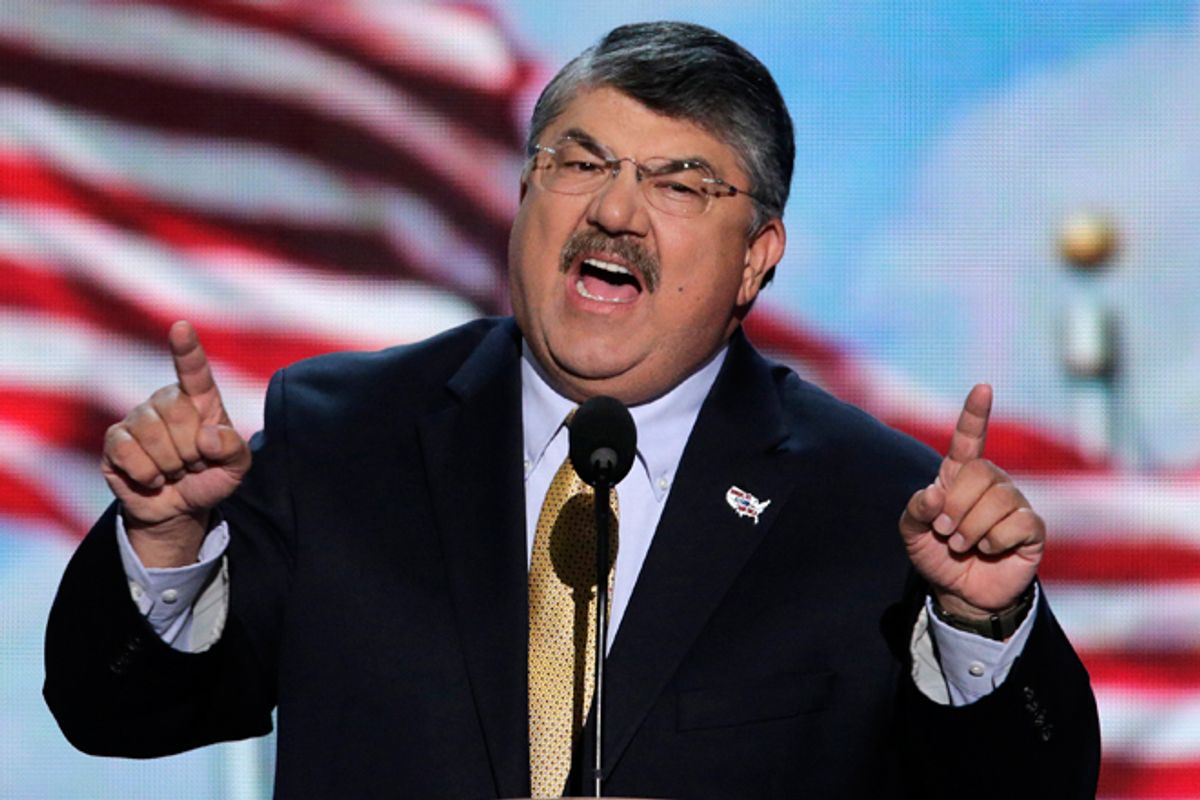Reporting from the AFL-CIO's annual convention, Josh Eidelson wrote for the Nation that the U.S.'s largest federation of unions has pledged to work more with the "alt-labor" movement and slammed the Prison Industrial Complex. Labor experts have noted that resolutions ratified at this year's convention indicate traditional labor's increasing support for the un-unionized workers -- such as the fast-food strikers -- attempting to mass organize across the country. However, an AFL-CIO resolution is far from a binding commitment.
Via Eidelson:
The largest federation of US unions, the AFL-CIO, passed resolutions Monday slamming “the big business behind mass incarceration,” promising intensified collaboration with alternative labor groups and granting its leadership new oversight tools designed to spur more effective organizing by its fifty-seven unions.
“Politicians and employers want to divide us,” AFL-CIO President Richard Trumka told delegates in a morning keynote address. “They want to tell us who can be in the labor movement and who can’t. We can’t let them.”
... While committing to work more closely with alt-labor and liberal allies, AFL-CIO delegates also passed a resolution—essentially ignored in mainstream pre-convention press—authorizing a more active federation role in overseeing unions’ efforts to win collective bargaining for more workers. Under the resolution, which passed—to the surprise of some—without vocal opposition, each union in the AFL-CIO will be required to submit an annual confidential organizing plan to AFL-CIO President Trumka which, “will include areas of focus, resource commitments, strategies and tactics and projected timeline.” Based on the plans, the AFL-CIO leadership will then, “prioritize strategic and material assistance,” and identify potential conflicts or cooperative opportunities between unions; the AFL-CIO is also directed to develop “incentives for compliance.”
However, with some skepticism about the unions' commitment to follow through for alt-labor, Kate Bronfenbrenner, who directs labor education and research at Cornell University, told Eidelson that Monday's passage of the resolutions could be "to a pledge made at an AFL-CIO Organizing Committee meeting in the early ’90s, at which she said unions agreed to provide confidential reports regarding the percentage of their international unions’ budgets devoted to organizing." Eidelson noted:
According to Bronfenbrenner, she was tasked with drafting a survey to actualize that pledge, but once she presented it to the group, that plan fizzled, because some union leaders, “really didn’t know how much they spent,” and others, “were uncomfortable.”
“The resolutions are goals that they set, but there’s no enforcement,” said Bronfenbrenner. Still, she said, what’s, “different about this time is that they actually had a new strategy” for the federation to play the kind of active role in coordinating affiliates’ organizing campaigns that is sometimes played by state or local labor councils. She predicted that the extent to which individual unions provided honest information in the plans pledged under the new resolution would depend on each union’s seriousness about organizing, level of trust in Trumka and level of distrust of other AFL-CIO unions that could seek to organize the same turf. “I think the actively organizing unions will do it,” she said. Whereas, “If they’re not organizing, then what interest would they have in participating in it?”



Shares